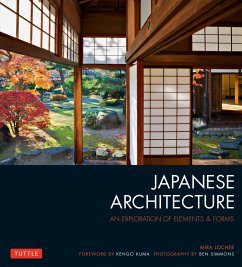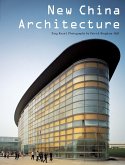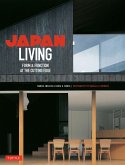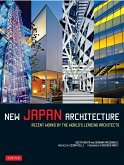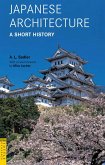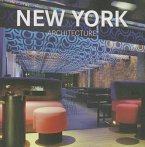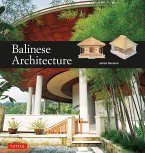- Broschiertes Buch
- Merkliste
- Auf die Merkliste
- Bewerten Bewerten
- Teilen
- Produkt teilen
- Produkterinnerung
- Produkterinnerung
Provides a comprehensive perspective on traditional Japanese architecture, relating the historical context.
Andere Kunden interessierten sich auch für
![New China Architecture New China Architecture]() Xing RuanNew China Architecture25,99 €
Xing RuanNew China Architecture25,99 €![Japan Living Japan Living]() Marcia IwatateJapan Living25,99 €
Marcia IwatateJapan Living25,99 €![New Japan Architecture New Japan Architecture]() Geeta MehtaNew Japan Architecture25,99 €
Geeta MehtaNew Japan Architecture25,99 €![Japanese Architecture: A Short History Japanese Architecture: A Short History]() A. L. SadlerJapanese Architecture: A Short History11,99 €
A. L. SadlerJapanese Architecture: A Short History11,99 €![Lofts Lofts]() Aurora CuitoLofts21,99 €
Aurora CuitoLofts21,99 €![New York Architecture New York Architecture]() New York Architecture29,99 €
New York Architecture29,99 €![Balinese Architecture Balinese Architecture]() Julian DavisonBalinese Architecture14,99 €
Julian DavisonBalinese Architecture14,99 €-
-
-
Provides a comprehensive perspective on traditional Japanese architecture, relating the historical context.
Produktdetails
- Produktdetails
- Verlag: Tuttle Publishing
- 2nd edition
- Seitenzahl: 224
- Erscheinungstermin: 17. März 2015
- Englisch
- Abmessung: 225mm x 250mm x 15mm
- Gewicht: 888g
- ISBN-13: 9784805313282
- ISBN-10: 4805313285
- Artikelnr.: 41125409
- Verlag: Tuttle Publishing
- 2nd edition
- Seitenzahl: 224
- Erscheinungstermin: 17. März 2015
- Englisch
- Abmessung: 225mm x 250mm x 15mm
- Gewicht: 888g
- ISBN-13: 9784805313282
- ISBN-10: 4805313285
- Artikelnr.: 41125409
Mira Locher, FAIA, is an architect and professor who works in both the US and Japan. Born in Pennsylvania, she studied architecture and urbanism at Smith College and received her Master of Architecture degree from the University of Pennsylvania. She worked for Team Zoo Atelier Mobile in Japan for seven years before setting up an architectural practice in the US in partnership with Takayuki Murakami. See their website at www.kajikaarchitecture.com. Mira Locher is an Associate Professor in the College of Architecture and Planning at the University of Utah. Her research focuses on traditional and contemporary Japanese design, and she is the author of Super Potato Design: The Complete Works of Takashi Sugimoto and Zen Gardens: The Complete Works of Shunmyo Masuno. Ben Simmons grew up in Columbus, Georgia. He studied photography and psychology in Upstate New York before completing a Master of Fine Arts in photography and art history at the University of Florida. Simmons taught photography at Penland School of Crafts in North Carolina before relocating to Japan. Ben Simmons Photography Inc. is based on the Miura Peninsula seacoast at Sagami Bay, just south of Tokyo. Ben specializes in photoessays and book projects. Recent books include Tokyo Desire; Hong Kong: The City of Dreams; Thailand: 9 Days in the Kingdom; Platinum Images of Thai Buddhism, Tokyo Megacity and Kyoto: City of Zen. Visit his website at www.bensimmonsphoto.com. Kengo Kuma was born in Kanagawa, Japan, and completed a major in architecture at the University of Tokyo. Kengo Kuma & Associates, his own studio, was established in 1990. He also worked as a visiting professor on the faculty of environmental information at Keio University. In 1997 he won the prestigious Architectural Institute of Japan Award for his work on "recovering the tradition of Japanese buildings" and reinterpreting it for the 21st century. In 2008, Kuma earned his Ph.D. from Keio University, and he is currently a professor on the faculty of science and technology there, in the department of system design engineering.

